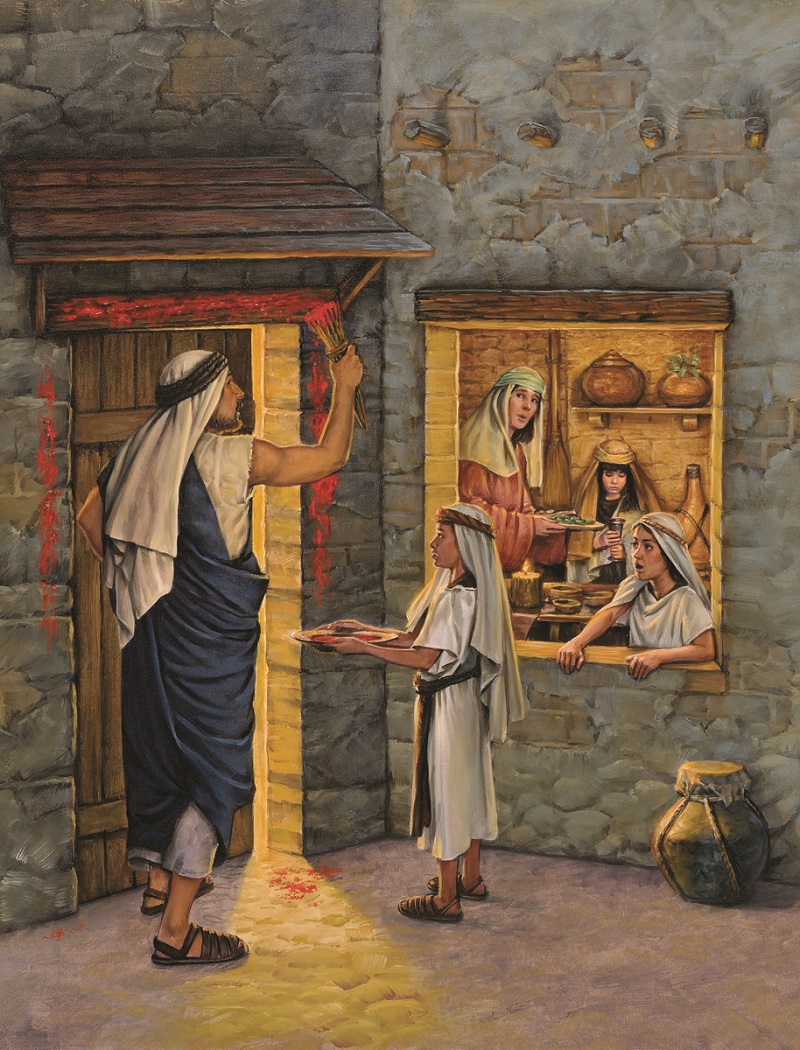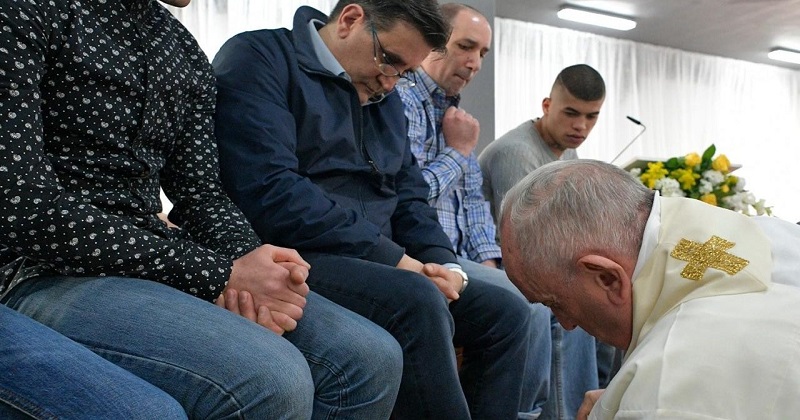The essence of God is love. We commemorate God’s infinite love on Holy Thursday. During the Last Supper of our Saviour Jesus Christ, on that fateful night before His agony and arrest in the garden, he washed the feet of His disciples (cf. John 13:1-15) and instituted the Holy Eucharist – the sacrament of his Body and Blood (cf. 1 Cor. 11:23-25; Mark 14:22-24; Matt. 26:26-28).
The Catechism of the Catholic Church teaches us that Christ instituted the Holy Eucharist “in order to perpetuate the sacrifice of the cross throughout the ages until He should come again, and so to entrust to His beloved Spouse, the Church, a memorial of His death and resurrection: a sacrament of love, a sign of unity, a bond of charity, a Paschal banquet in which Christ is consumed, the mind is filled with grace, and a pledge of future glory is given to us” (CCC #1323).
 God had established His covenant with the people of Israel, after He had delivered them from their slavery in Egypt. It was sealed with the blood of animals that the Israelites sacrificed (Exo. 24:3-8). But the people became unfaithful to God and to the covenant. Therefore, in the course of time the old covenant became outdated and it no longer had any effect. God, then, established a new and better covenant. The Letter to the Hebrews tells us that this new covenant has been sealed, not with the blood of animals, but with the precious blood of Jesus Christ through His one perfect.
God had established His covenant with the people of Israel, after He had delivered them from their slavery in Egypt. It was sealed with the blood of animals that the Israelites sacrificed (Exo. 24:3-8). But the people became unfaithful to God and to the covenant. Therefore, in the course of time the old covenant became outdated and it no longer had any effect. God, then, established a new and better covenant. The Letter to the Hebrews tells us that this new covenant has been sealed, not with the blood of animals, but with the precious blood of Jesus Christ through His one perfect.
What Christ would do in a bloody manner on the cross on Good Friday, he did in a Sacramental manner on Holy Thursday in the Upper Room at the Last Supper with His disciples. He took the bread and broke it and said, “Take this, and eat. This is my body” (Matt. 26:26). The same body would be broken on the cross the following day. He then took the cup of wine and gave it to his disciples to drink as he said, “this is my blood of the new covenant, which is shed for many for the forgiveness of sins” (Matt. 26:28; cf. Luke 22:20). Thus, the blood he would shed on the cross on Good Friday was already poured out in a sacramental way during the Last Supper. He thus instituted the Sacrament of the Most Holy Eucharist of his Body and Blood. This is the most precious gift he would leave with his disciples and the disciples of all ages and places until he would return. This was Jesus’ way of being with his followers “until the end of time.” It was time for him to take leave from this world, leaving his dear ones behind, and yet he had an intense desire to be with them. He thus, in a brilliant way, fulfils his need to go and at the same time to be present to his Church by way of this Sacrament.
Jesus asked his disciples to “do this in memory of me.” They are to celebrate the Eucharist in memory of him (Luke 22:19) until the end of time. This is also the clear proof of the institution of the Holy Priesthood in order to continue the celebration of the Eucharist in memory of Christ and on behalf of him. Every time we celebrate the Eucharist, the sacrifice of Calvary is made present again. Thus, St. Paul affirms: “As often as you eat this bread and drink this cup you proclaim the death of the Lord until He comes again” (1 Cor. 11:26).
The Holy Eucharist is the sacrament of love. Through it, Jesus Christ makes himself present to us, gives himself as our food and drink and thus reveals to us God's infinite love for every human person. It shows that “there is no greater love than to lay down one’s life for the loved one” (Jn 15:13). Jesus loved us love "to the end" (Jn 13:1). This love that he manifested is the very essence of God.
The Holy Eucharist and Priesthood are also sacraments of humility. During the Last Supper, he got up from his seat, tied a towel around himself, stooped down and washed the feet of his disciples, as sign of absolute humility. This was an act only a slave would do to his master. Our Lord, thus, made himself equal to a slave. He then asked his disciples to do the same act which he, their Master and Lord did to them. This act of humility and service is also manifested in his giving of himself in the sacrificial death on the cross and sharing his body and blood with us as our food and drink.

Pope Francis washes the feet of 12 inmates during Holy Thursday in 2019, Vatican Media
The events of the Holy Thursday challenge us to be more Christ-like in his act of sharing, giving, serving and dying. Every time we celebrate and partake of the Holy eucharist, we become more like Christ in his humility, service and generous self-giving for others. The challenge before each of us today is to be a “Eucharistic person” willing to be broken and shared in humility and self-sacrifice.